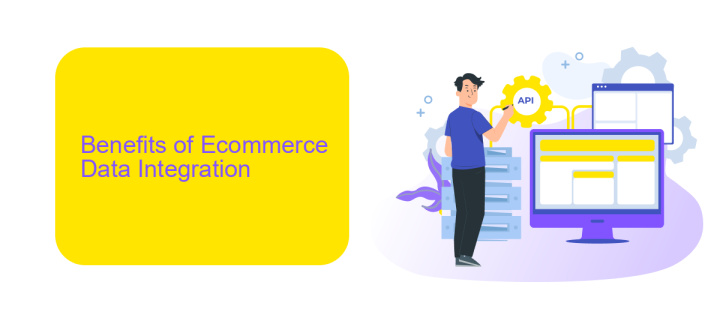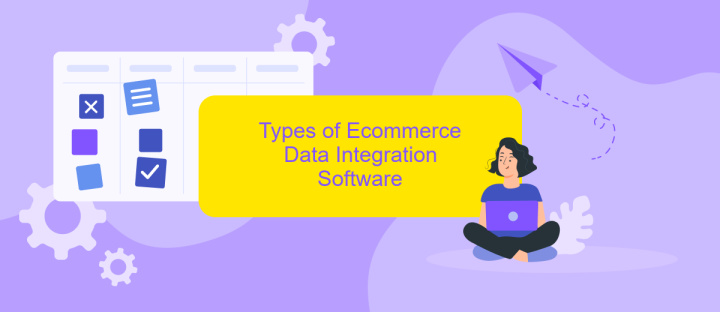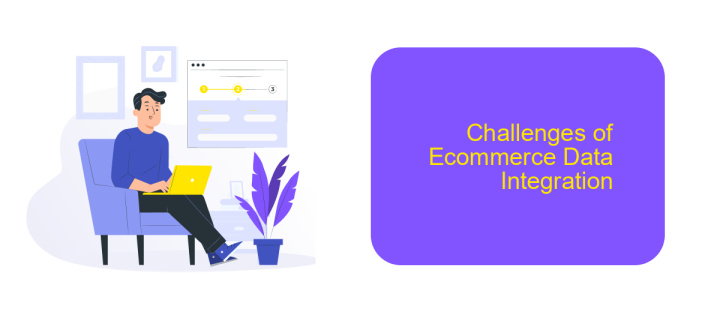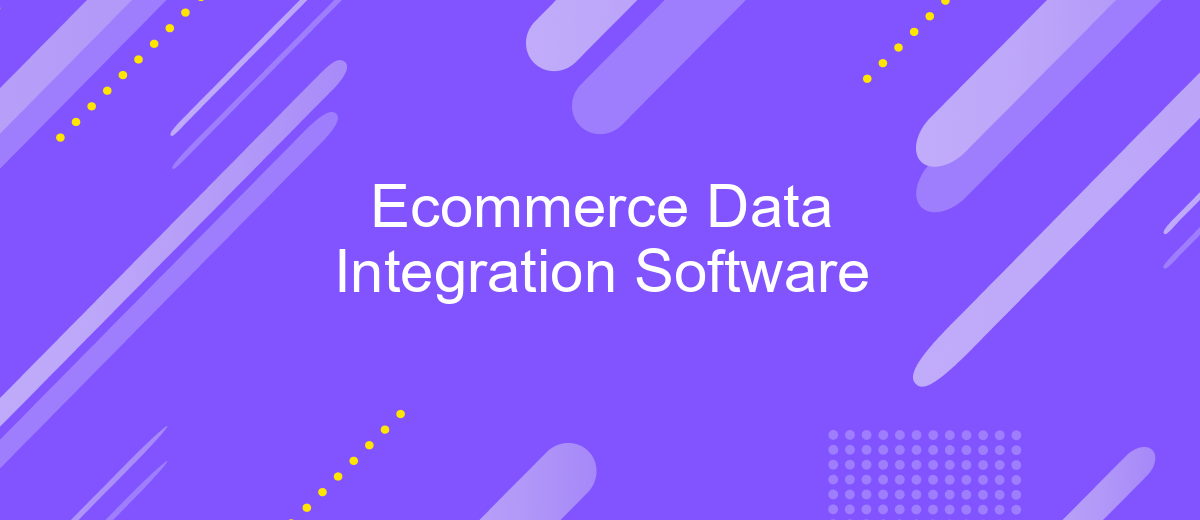Ecommerce Data Integration Software
In today's fast-paced digital marketplace, eCommerce businesses are increasingly relying on data integration software to streamline operations, enhance customer experiences, and drive growth. By seamlessly connecting various platforms and automating data flows, eCommerce data integration software enables companies to optimize inventory management, improve order processing, and gain valuable insights, ultimately fostering a more efficient and competitive business environment.
Introduction
In today's rapidly evolving digital landscape, ecommerce businesses face the challenge of managing vast amounts of data from multiple sources. Efficient data integration is crucial for maintaining seamless operations and making informed decisions. Ecommerce data integration software plays a vital role in consolidating data from various platforms, ensuring that all critical information is accessible in one unified system.
- Automated data synchronization: Keeps data up-to-date across all channels.
- Improved data accuracy: Reduces errors and inconsistencies.
- Enhanced decision-making: Provides a holistic view of business performance.
- Scalability: Easily adapts to growing business needs.
One such solution is ApiX-Drive, which simplifies the process of integrating and automating data flow between different ecommerce platforms. By leveraging the capabilities of ApiX-Drive, businesses can streamline their operations, reduce manual tasks, and focus on strategic growth. This introduction to ecommerce data integration software highlights the importance of choosing the right tools to achieve operational efficiency and drive success in the competitive ecommerce landscape.
Benefits of Ecommerce Data Integration

Ecommerce data integration streamlines the process of managing and synchronizing data across various platforms, resulting in improved operational efficiency. By automating data exchange between systems like CRM, ERP, and online stores, businesses can reduce manual data entry and minimize errors. This leads to more accurate inventory management, better customer insights, and enhanced decision-making capabilities. Additionally, integrated systems allow for real-time updates, ensuring that all departments are working with the most current information available.
One notable tool that facilitates seamless ecommerce data integration is ApiX-Drive. This service enables businesses to connect various applications and automate workflows without the need for extensive coding knowledge. ApiX-Drive supports a wide range of integrations, making it easier for companies to synchronize data between multiple platforms. By leveraging such tools, businesses can save time, reduce operational costs, and focus more on strategic initiatives rather than on routine data management tasks. Overall, ecommerce data integration is essential for maintaining a competitive edge in today's fast-paced digital marketplace.
Types of Ecommerce Data Integration Software

Ecommerce data integration software is essential for businesses to streamline their operations and improve efficiency. These tools help in synchronizing data across different platforms, ensuring that information is consistent and up-to-date. There are various types of ecommerce data integration software available, each catering to different needs and requirements.
- Point-to-Point Integrations: These are direct connections between two systems, allowing data to flow seamlessly from one platform to another.
- Middleware Solutions: These act as intermediaries between different systems, facilitating data exchange and transformation.
- API-Based Integrations: These use APIs to connect various platforms, offering flexibility and scalability. Services like ApiX-Drive specialize in setting up and managing these integrations efficiently.
- Custom Integrations: Tailored solutions designed to meet specific business needs, often requiring in-house development or specialized third-party services.
Choosing the right type of ecommerce data integration software depends on the complexity of your operations and the specific requirements of your business. Tools like ApiX-Drive can simplify the integration process, making it easier to manage and synchronize data across multiple platforms.
Challenges of Ecommerce Data Integration

Integrating ecommerce data presents numerous challenges that can hinder seamless operations. One of the primary issues is data silos, where information is isolated within different systems and departments, making it difficult to achieve a unified view of business processes.
Another significant challenge is data inconsistency. Discrepancies in data formats, structures, and standards across various platforms can lead to errors and inefficiencies. This inconsistency can complicate data analysis and decision-making processes.
- Data silos limiting accessibility and integration
- Inconsistent data formats and structures
- Complexity in synchronizing real-time data
- Security concerns during data transfer
To address these challenges, businesses can leverage integration platforms like ApiX-Drive. This tool simplifies the process of connecting different systems, ensuring data is synchronized and accessible in real-time. By using such solutions, companies can overcome integration hurdles, enhance data accuracy, and streamline their ecommerce operations.
Best Practices for Ecommerce Data Integration
Effective ecommerce data integration requires a strategic approach to ensure seamless data flow between systems. Start by identifying key data points that need to be synchronized, such as inventory levels, customer information, and order statuses. Utilizing middleware platforms like ApiX-Drive can significantly simplify the integration process by providing pre-built connectors and automation tools, reducing the need for custom development.
Regularly monitor and update your data integration workflows to adapt to any changes in your ecommerce environment. Implement robust error-handling mechanisms to quickly identify and resolve any data discrepancies or integration failures. Additionally, ensure compliance with data privacy regulations by securing data transfers and maintaining audit trails. By following these best practices, you can achieve a more efficient and reliable ecommerce data integration process.
FAQ
What is Ecommerce Data Integration Software?
How does Ecommerce Data Integration Software benefit my business?
Can I integrate multiple ecommerce platforms with this software?
Is it difficult to set up and use Ecommerce Data Integration Software?
What kind of support is available if I face issues during integration?
Routine tasks take a lot of time from employees? Do they burn out, do not have enough working day for the main duties and important things? Do you understand that the only way out of this situation in modern realities is automation? Try Apix-Drive for free and make sure that the online connector in 5 minutes of setting up integration will remove a significant part of the routine from your life and free up time for you and your employees.

